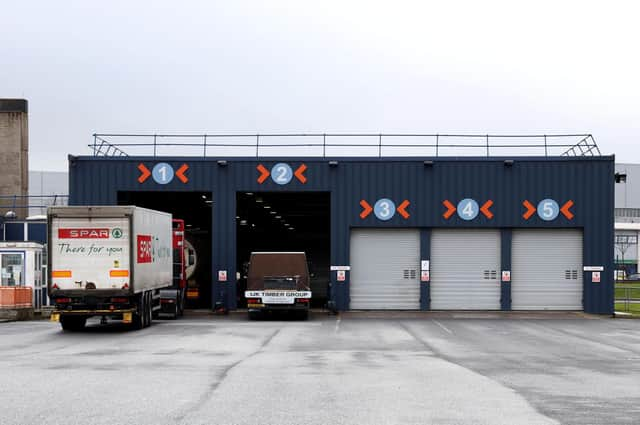‘Staggering’ sickness rates at MOT centres with nearly 7,000 days off in a year, says DUP MLA


Newry and Armagh MLA William Irwin has spoken of his concern after sickness leave statistics for Driver Vehicle Test Centres revealed a total of 6,994 sick days were accumulated across Northern Ireland's 15 vehicle test centres in a year.
With 490 staff members, that equates to around two full weeks off per worker.
Advertisement
Hide AdAdvertisement
Hide AdThe figures are revealed in written questions to Stormont's finance and infrastructure departments.
Mr Irwin said that while there is little doubt the coronavirus pandemic has likely played a part in the statistics, he described it as a worrying trend which has contributed to the current MOT delays crisis affecting thousands of motorists across the Province.
Currently, motorists can expect to wait several months for an MOT appointment for their vehicle with law enforcement and insurance companies urged to show flexibility to drivers - so long as essential maintenance works has been carried out.
“For 6994 sick days to be accumulated by a staff base of only 490 from 1st September 2021 to 31st August 2022, is a staggering statistic and it certainly points to part of the reason why motorists have faced such a crisis in trying to get a date for their MOT or a driving test," Mr Irwin said.
Advertisement
Hide AdAdvertisement
Hide Ad"If this happened in the private sector, the business would have gone bankrupt. Leave of this scale is a recipe for bankruptcy."
He continued: "With such a high figure, I have written to the DVA Chief Executive and urged him to think again when it comes to managing the workforce. There is evidently an underlying problem which must be addressed. The efficiency and output must be heavily curtailed simply due such a high sick leave rate.”
A spokesperson for the Department for Infrastructure, meanwhile, said: “The Department acknowledges the significant impact of ill-health and sick absence on the cost and quality of service delivery and has robust policies and procedures in place to manage sick absence to ensure, where possible, staff are able to return to work at the earliest opportunity."